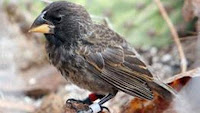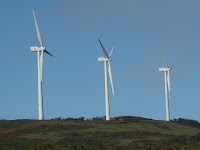This is a very personal post. This is a short story of how I learn something from my guests on every journey. It's also a story about how I continue to appreciate and love not only the Galapagos Islands, but the unique position I find myself in as I am able to share with my guests this wonderful world I call my home.
Recently, a friend of mine was in New York City when she came upon a sign at Battery Park, the place where you take a ferry to the Statue of Liberty and Ellis Island. She sent me a picture because, she said, I would find it ironic. She was right.
Here’s the photo:
 |
I can’t even enjoy a blade of grass unless I know there’s a subway
handy,
or a record store or some other sign that people do not totally
regret life. Poem by Frank O'Hara. |
I have to admit, the poem shocked me. When I first read it, what I felt is that whoever wrote that urban poem and I have totally different life visions. We approach life from opposite perspectives. We would never see eye-to-eye on nature and the environment, conservation and preservation, peaceful existence and comfort, fulfillment and satisfaction, ecology and evolution.
 The Galapagos Islands represent natural beauty and stand as the symbol for the origin and evolution of life on Earth. Equally, they represent the Earth’s past and future conservation and preservation efforts. Ecological interaction with the planet is epitomized in the way humans interact with the animals, marine life, birds and even the land itself. This is a most phenomenal archipelago, and Charles Darwin played a major role in making it so.
The Galapagos Islands represent natural beauty and stand as the symbol for the origin and evolution of life on Earth. Equally, they represent the Earth’s past and future conservation and preservation efforts. Ecological interaction with the planet is epitomized in the way humans interact with the animals, marine life, birds and even the land itself. This is a most phenomenal archipelago, and Charles Darwin played a major role in making it so. While Charles Darwin did not discover the Galapagos Islands, he is the name most associated with their history and recognition. For it was Charles Darwin, a young naturalist, who came to the Islands, observed the plant, marine, bird and animal life and designed the intellectual premise known as natural selection or survival of the fittest. His thoughtful interpretation of what he saw and recorded changed human thought and understanding of the world around us forever. He saw continuity and coherency despite the diversity on each island and was able to merge these observations into a cogent scientific process that explains how life on earth evolved.
While Charles Darwin did not discover the Galapagos Islands, he is the name most associated with their history and recognition. For it was Charles Darwin, a young naturalist, who came to the Islands, observed the plant, marine, bird and animal life and designed the intellectual premise known as natural selection or survival of the fittest. His thoughtful interpretation of what he saw and recorded changed human thought and understanding of the world around us forever. He saw continuity and coherency despite the diversity on each island and was able to merge these observations into a cogent scientific process that explains how life on earth evolved..JPG)



